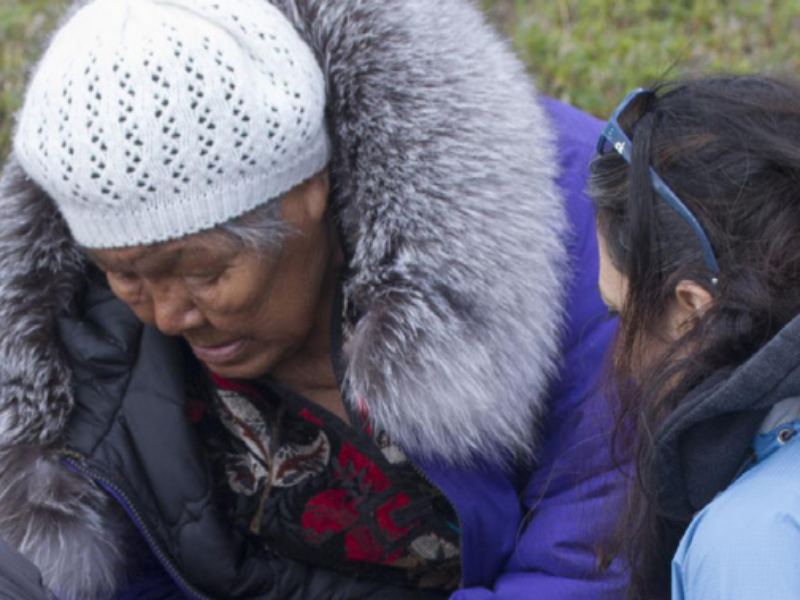 Executive Summary
Executive Summary
During the COVID-19 pandemic, there was an increased demand for food production and distribution services from non-profit community service organizations, and an increased need for workers with the right mix of skills to meet this demand. In response, Weston Frontlines Centre created the Frontlines of Crisis Training Program, a 15-week hybrid training program to prepare young people with skills relevant for food production and distribution in the non-profit sector.
The program was developed in consultation with young people and community partners, and its initial cohort included 11 participants. Close to three-quarters of participants secured a placement at a community service organization following the training. The six participants who completed the placements reported largely positive outcomes, including increased confidence in their culinary skills and social work knowledge. Respondents also acquired transferable skills during their placements, which were recognized for providing valuable learning and personal growth opportunities. However, personal and social barriers such as financial hardship and mental health issues negatively affected some trainee outcomes.
This project matters because demand for food production and distribution within the non-profit sector is likely to remain high as levels of food insecurity continue to rise. Funders of community service organizations should seek to support further training programs for the workers they need, and consider how funding can support recruitment and retention of workers in this sector by providing for better quality of work.
Key Insights
Addressing personal and social barriers such as financial hardship and mental health issues is crucial to ensuring these barriers do not hinder participant progress and outcomes, particularly when working with marginalized populations.
Flexibility and resilience are key for program delivery teams, especially when testing new solutions, enabling them to adapt to implementation challenges and emerging client needs.
Early, consistent, and targeted stakeholder engagement is key to building an effective consultation process and leveraging community outreach strategies to recruit participants.
 The Issue
The Issue
The disruptive effects of the COVID-19 pandemic led to a loss of workers and businesses in the culinary sector and increase in demand for non-profit community services, particularly in food production and distribution. Organizations working to coordinate food production and distribution to those in need during the pandemic, needed workers with the right mix of skills from social work, food and health to work in community kitchens and health care services.
The Weston Frontlines Centre, a youth organization in the York-South Weston neighbhourhood of Toronto had been operating culinary programs primarily for Black youth for more than five years and was seeing higher demand for its services such as preparing packed meals for community agencies that did not have their own onsite kitchens.

 What We Investigated
What We Investigated
In response to these demands, this project developed and launched the Frontlines of Crisis Training Program that aimed to cultivate essential skills for working in community food preparation and distribution, as well as in non-profit organizations. It was hoped that this combination of skills would increase the employability of the youth, aged 15 to 29, who participated, and help meet the local demand for these skills accelerated by the pandemic.
The program consisted of the development of a hybrid, 15-week skills training curriculum, that included job searching support in order to secure subsequent work placements at community organizations for youth participants.
The curriculum included:
- Community asset mapping
- Community outreach
- Mental health first aid
- Fundraising
- Data tracking, collection, and analysis
- Food and environment health and safety including proper sanitation
- Food preparation: knife skills and safety
- Food handlers certificate
- CPR
- Workplace Hazardous Materials Information System training
Participants in the program also received around $1,600 for attending — $50 a day paid twice a week, to help alleviate the financial burden and time spent not in employment.
Project activities included focus groups with 37 youth and 11 partners across the nonprofit and health industries to better understand the needs of the target population and inform development of the curriculum. Most focus group participants were initially reached through community outreach, including through the 11 partners, rather than social media marketing.
 What We’re Learning
What We’re Learning
Eleven youth participated in the training — 64% (7) were racialized, 91% (10) were female and 18% (2) identified as belonging to the LGBTQ2S+ community. All 11 participants received their Emergency First-Aid, Basic Life Support and WHMIS certification. Of the 11 participants, 73% (8) were able to secure placements but 25% of those participants (2) were unable to complete their placement due to lack of financial support. While the project offered some financial incentives for participants, ultimately project staff felt the amount was insufficient to cover the costs for some participants.
Program feedback from the six participants who successfully completed their placements included enhanced confidence in culinary skills (applicable for their personal lives as well) and increased confidence working in social service roles post-program. All six respondents also felt their placement offered learning and personal growth opportunities. Respondents emphasized improved competencies in time management, session facilitation, understanding of mental health, communication, and community mapping – transferable skills that were applied during their placements with community organizations.
Recruitment challenges
Although virtually all youth who participated in the focus groups expressed interest in the program, only 11 enrolled when it was launched, a 69% dropoff and falling short of the initial target of 15 participants. Program implementation delays and marketing challenges created challenges for the team and potentially contributed to some of this dropoff. The project team emphasized the importance of early and consistent engagement and highlighting the project’s value and objectives to boost participation.
Barriers to success
Personal and social hurdles, including financial hardship, homelessness, food insecurity, immigration challenges, and mental health issues, impacted many of the program participants and their outcomes. Project staff worked to offer participants more holistic supports encompassing personal, social, and mental wellbeing, during and after the training. Project staff felt these adaptations contributed to positive participant outcomes by addressing the barriers that hinder trainee performance and potential. The project team’s adaptability in uncovering and addressing participants’ needs, as well as the scope of the program administration required to address them also prompted significant capacity building within the project staff team.
 Why It Matters
Why It Matters
Four years after the start of the pandemic, food insecurity continues to be a major need in Toronto, with food banks across the city seeing year-over-year increases in clients. The Daily Bread food bank estimates that in 2023, 1 in 10 people in Toronto were relying on food banks to make ends meet, up from 1 in 20 in 2022. Community service organizations continue to face high demand for food from clients, propelling many to maintain food services expanded during the pandemic. Given these trends, there will be ongoing demand for workers with a combination of skills in food production and distribution in a non-profit context.
Funders of community services should consider how to support skills development programs that create the workers the sector needs to provide services vital to community wellbeing. A recent survey of Ontario’s non-profits showed that two-thirds are facing staffing challenges. More supportive programming is needed to ensure workers have the right skills, and that community organizations are able to offer workers good quality of work — a goal that largely depends on funding parameters.

State of Skills:
Enhancing Career Prospects and Well-Being for Canadian Youth
Focus on early career guidance programs to introduce youth to a range of career paths, empowering them to make informed decisions with a strong emphasis on inclusivity and accessibility.
 What’s Next
What’s Next
Following their initial program cohort and participation in the FSC Accelerator program, the Weston team further refined their program design and curriculum. Notable adjustments involved expanding training from two to four days (one virtual, three in-person) and increasing placement hours from 16 to 80. These modifications aimed to enhance learning and practice opportunities for students and were planned to be tested through a second cohort later in 2023.
Weston Frontlines Centre continues to offer skills training for young people in the York-South Weston neighbourhood.
On the frontlines crisis training program
Have questions about our work? Do you need access to a report in English or French? Please contact communications@fsc-ccf.ca.
More from FSC
Strength in structure
Sustainable Northern Livelihoods: A Primer
Unleashing AI into the Skills Development Ecosystem
On the Frontlines of Crisis Training Program is funded by the Government of Canada’s Future Skills Program. The opinions and interpretations in this publication are those of the author and do not necessarily reflect those of the Government of Canada.




